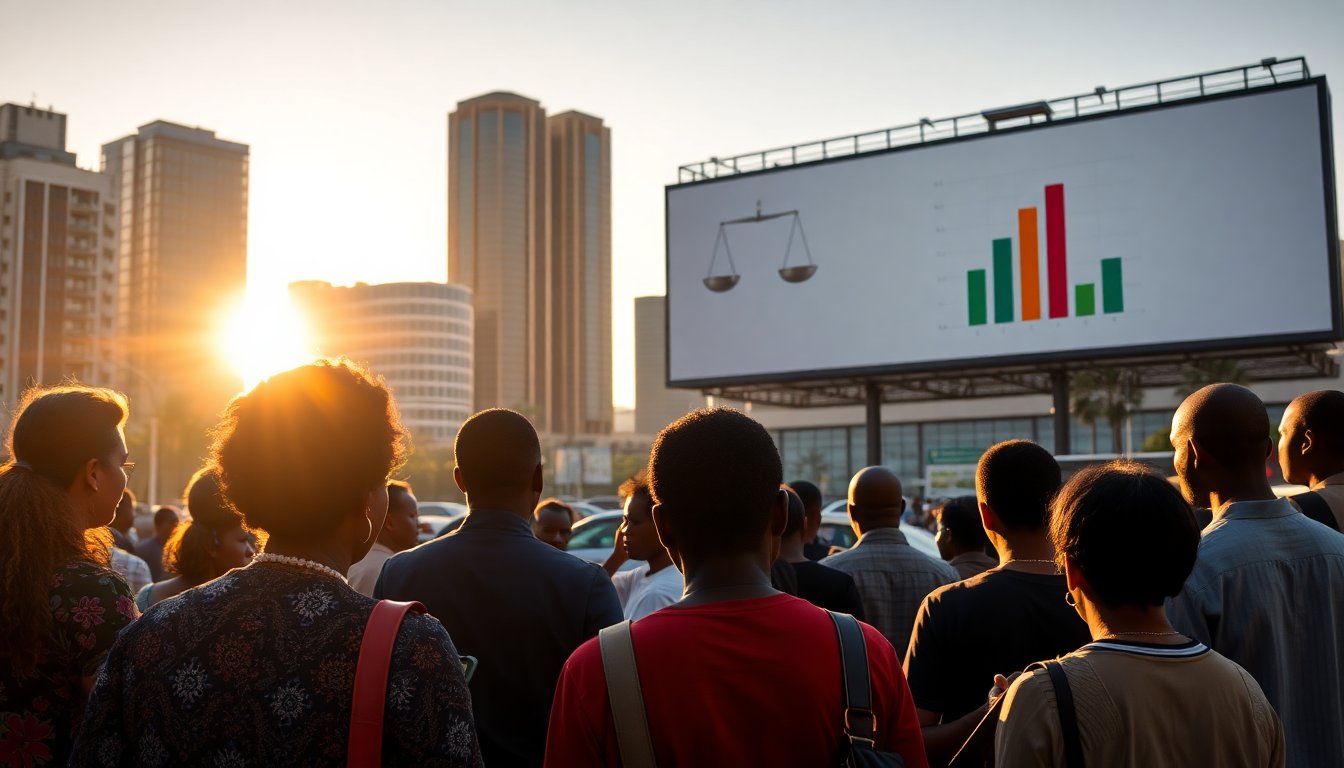Table of Contents
The upcoming G20 summit in Johannesburg represents a critical moment in the global discourse on economic inequality. Under the leadership of South Africa’s presidency, the focus is on the escalating issue of wealth disparity, which has intensified due to recent global events. A report commissioned by the South African president emphasizes the severity of this crisis, revealing that the wealthiest individuals in G20 nations have amassed significant fortunes, while billions continue to struggle below the poverty line.
The stark reality of wealth accumulation
Recent data shows that G20 billionaires collectively increased their wealth by an impressive 16.5% over the past year, rising from $13.4 trillion to $15.6 trillion. According to Oxfam, this increase in wealth could have lifted approximately 3.8 billion people out of poverty, as an estimated $1.65 trillion is needed annually to eradicate poverty at the internationally recognized threshold of $8.30 per day. This striking contrast underscores the profound disparity where the richest thrive while the majority remain in precarious financial situations.
Understanding the inequality emergency
Prominent economists, including Professor Joseph Stiglitz, have termed this scenario an inequality emergency. The G20’s own analysis indicates that since 2000, the richest 1% have claimed a startling 41% of every new dollar generated in the global economy, while the bottom half has received a mere 1%. These findings not only highlight economic imbalance but also signal broader implications for democracy and social stability.
The role of the G20 in addressing global challenges
As the G20 convenes, there is an urgent need for leaders to focus on actions that can mitigate this wealth gap. The recent report advocates for the creation of an International Panel on Inequality, modeled after the Intergovernmental Panel on Climate Change (IPCC), which would provide scientific insights and policy recommendations to combat inequality globally. This initiative has garnered support from several G20 nations, with South Africa calling for collaboration among member states.
A call to action
The urgency of the situation is further intensified by the geopolitical landscape, notably the absence of the United States from this year’s summit. The U.S. government faces criticism for policies that worsen inequality, both domestically and internationally. Conversely, other G20 nations have the chance to establish a new course, emphasizing international cooperation and equitable tax systems that prioritize the general populace over the wealthiest few.
As Oxfam’s Executive Director Amitabh Behar articulates, “Inequality is a deliberate policy choice,” highlighting the need for systemic reform. G20 leaders are urged to reaffirm their commitments to effective taxation of the ultra-wealthy, considering that only 8% of tax revenue in G20 countries is derived from wealth-based taxes. This alarming statistic underscores the necessity for reform to generate the funds required for essential public services.
Debt distress and its implications
Furthermore, the G20 must confront the escalating issue of debt distress among low-income nations. Current estimates indicate that over half of these countries are either in or at risk of defaulting on their debts, severely limiting their ability to invest in critical sectors such as education and healthcare. With 3.4 billion people residing in countries where government spending on interest payments exceeds that on health and education, it is crucial to address this issue directly.
As the summit approaches, it is evident that South Africa’s agenda is both timely and vital. The call for a united front against economic disparity resonates with an increasing number of nations that recognize the importance of sustainable and equitable growth. The decisions made during this summit could lay the groundwork for a more equitable future, benefiting all of humanity.


